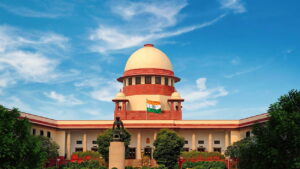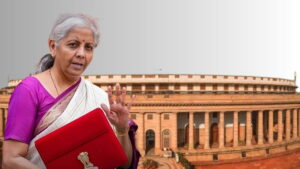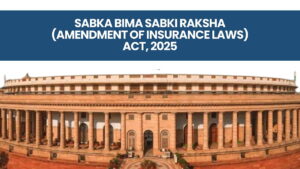When the ink dries on a cross-border contract, the clause most likely to determine the fate of any future dispute is the arbitration clause—more specifically, the seat of arbitration. Parties often write “arbitration in Mumbai, hearings in Singapore” and assume the distinction between seat and venue is harmless. Indian courts beg to differ: the seat fixes the juridical home of the arbitration and, with it, the courts that can make or break an award. This guide explains:
- the legal difference between seat and venue in India,
- key 2024-25 Supreme Court developments, and
- a practical checklist for choosing—and drafting—an iron-clad seat for India-related deals.
Seat vs Venue: the Indian Legal Vocabulary
- Seat – the legal “situs” of the arbitration; it selects the curial law and the courts with supervisory jurisdiction (e.g., setting-aside applications, interim measures).
- Venue – the place where hearings happen for convenience; it has no automatic legal consequences unless the contract shows the parties intended otherwise.
Why it matters
- Curial law & procedural rules – The Indian Arbitration & Conciliation Act, 1996 (“Act”) applies only if the seat is in India (Part I).
- Court interference – Indian courts may grant interim relief or annul awards solely for India-seated arbitrations, unless Part II enforcement is triggered.
- Enforcement ease – Foreign-seated awards are enforced via the New York Convention; India-seated awards follow domestic enforcement.
Snapshot of Indian Case Law (2012-2025)
| Year | Case | Take-away |
| 2012 | BALCO | Drew a bright line between seat (Part I applies) and venue. |
| 2017 | Indus Mobile | Naming a city as “venue” with exclusive-jurisdiction language makes it the seat. |
| 2020 | BGS SGS Soma | Re-affirmed the Shashoua test: an exclusive-jurisdiction clause converts the venue into the seat. |
| 2023 | Inox Renewables | Change of venue by consent shifts the legal seat.(VIA Mediation Centre) |
| 2024 | Arif Azim v Micromax | Fresh reminder: a “venue” becomes the seat if the clause contains no contrary indicators.(Dispute Resolution Blog) |
| 2025 | Dubai-seat ruling (SC, Jan 2025) | If parties name Dubai as “venue” and choose UAE law, Dubai is the seat—even for India-centred contracts.(Global Arbitration News) |
Trend: The Supreme Court continues to favour party autonomy and interpretive clarity, but will step in when the drafting is sloppy.
How to Choose the Optimal Seat for an India-Related Deal
1. Neutrality & party confidence
Is either side nervous about home-court advantage? Consider proven neutral seats—Singapore, London, Dubai—especially where investment or financing comes from outside India.
2. Supportive judiciary
Indian seats (Delhi, Mumbai) offer fast-track enforcement and pro-arbitration benches, but may still face delays in lower courts. Seats like Singapore or London provide a deeper bench of arbitration-savvy judges.
3. Interim relief & emergency arbitrators
India amended the Act (2015, 2021) to recognise emergency awards, but practical enforcement is smoother in Singapore or Hong Kong.
4. Costs & logistics
Hearing rooms in Singapore can out-price New Delhi, while London’s weak rupee exchange may inflate budgets. Balance travel, counsel fees, and institutional costs.
5. Enforcement footprint
If the counter-party’s assets sit in India, an India seat speeds execution; if spread worldwide, a New York Convention seat might offer broader reach.
Drafting Tips: Make the Seat Unambiguous
- Name the seat expressly: “The seat (legal place) of arbitration shall be New Delhi, India.”
- Separate venue language: “Hearings may be conducted in Singapore or any location mutually agreed.”
- Exclusive jurisdiction clause: Grant supervisory courts exclusive jurisdiction—e.g., “The courts at New Delhi shall have exclusive jurisdiction.”
- Institutional rules reference: ICC, SIAC or MCIA rules with a stated seat reduce ambiguity.
- Avoid trigger words: Don’t switch between “seat”, “place”, “venue” interchangeably.
Popular Seats for India-Centric Disputes
- New Delhi & Mumbai – cost-efficient, increasingly pro-arbitration, especially after BALCO and commercial-court reforms.
- Singapore – top pick for South-Asian energy & tech disputes; robust emergency relief.
- London – preferred for high-value energy & banking deals with English-law governing clauses.
- Dubai (DIFC) – attractive for India–Middle East trade, now bolstered by the 2025 SC ruling.(Global Arbitration News)
Frequently Asked Questions
Q1: Does choosing an Indian city as seat make the award “domestic”?
Yes. Awards rendered with an Indian seat are “domestic” (Part I) even if parties or arbitrators are foreign. Foreign-seated awards fall under Part II.
Q2: Can the venue shift without changing the seat?
Only if the arbitration clause distinguishes them. Otherwise, as in Inox Renewables, parties’ consent to move the venue can shift the seat.(VIA Mediation Centre)
Q3: Will Indian courts grant interim relief for a foreign-seated arbitration?
Since the 2015 amendment, yes—Section 9 is available unless parties opt out, but courts exercise it sparingly.
Q4: What if the clause is silent on seat and venue?
Apply the “closest connection” test: look at governing law, venue wording, and convenience factors. Expect litigation.
Q5: Can we name two alternative seats?
Avoid—it triggers jurisdictional chaos. Choose one primary seat; allow venue flexibility instead.
Conclusion
Your arbitration seat is not a mere pin on a map—it dictates the procedural DNA of your dispute. A deliberate, well-drafted seat clause can save years of satellite litigation and protect hard-won awards. Foresight Law Offices has guided clients—from media houses to infrastructure majors—through seat selection and complex arbitration strategy.






